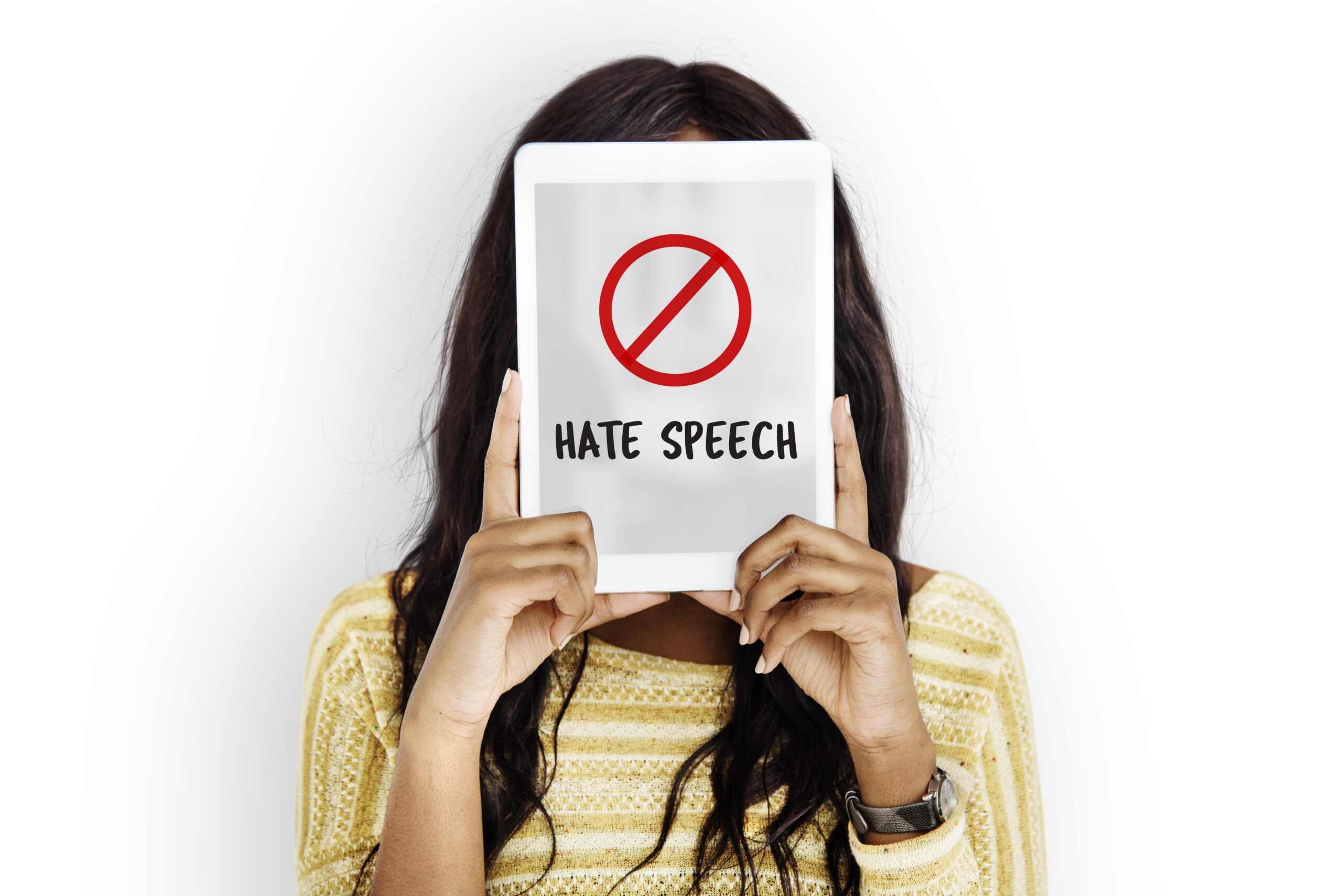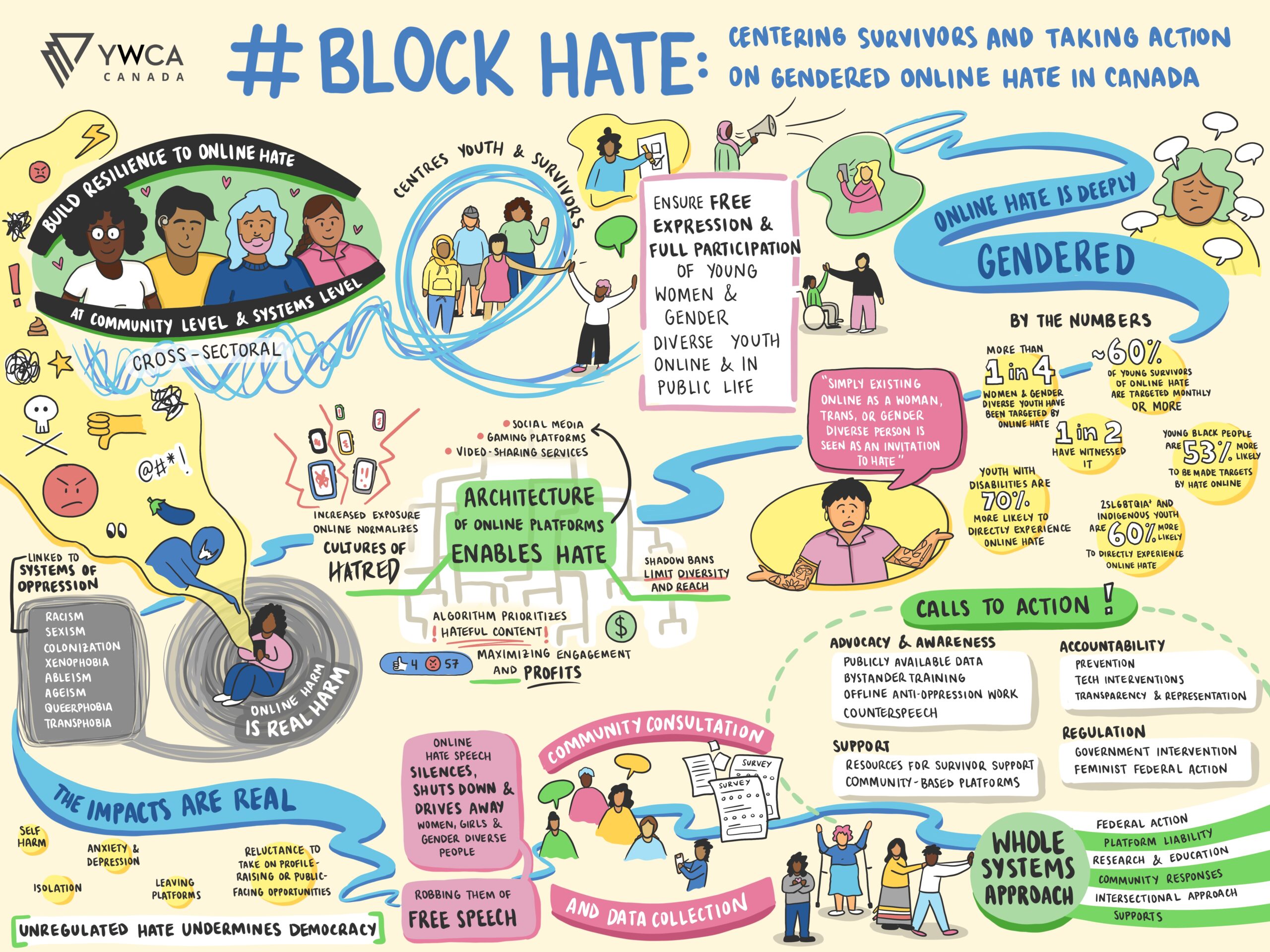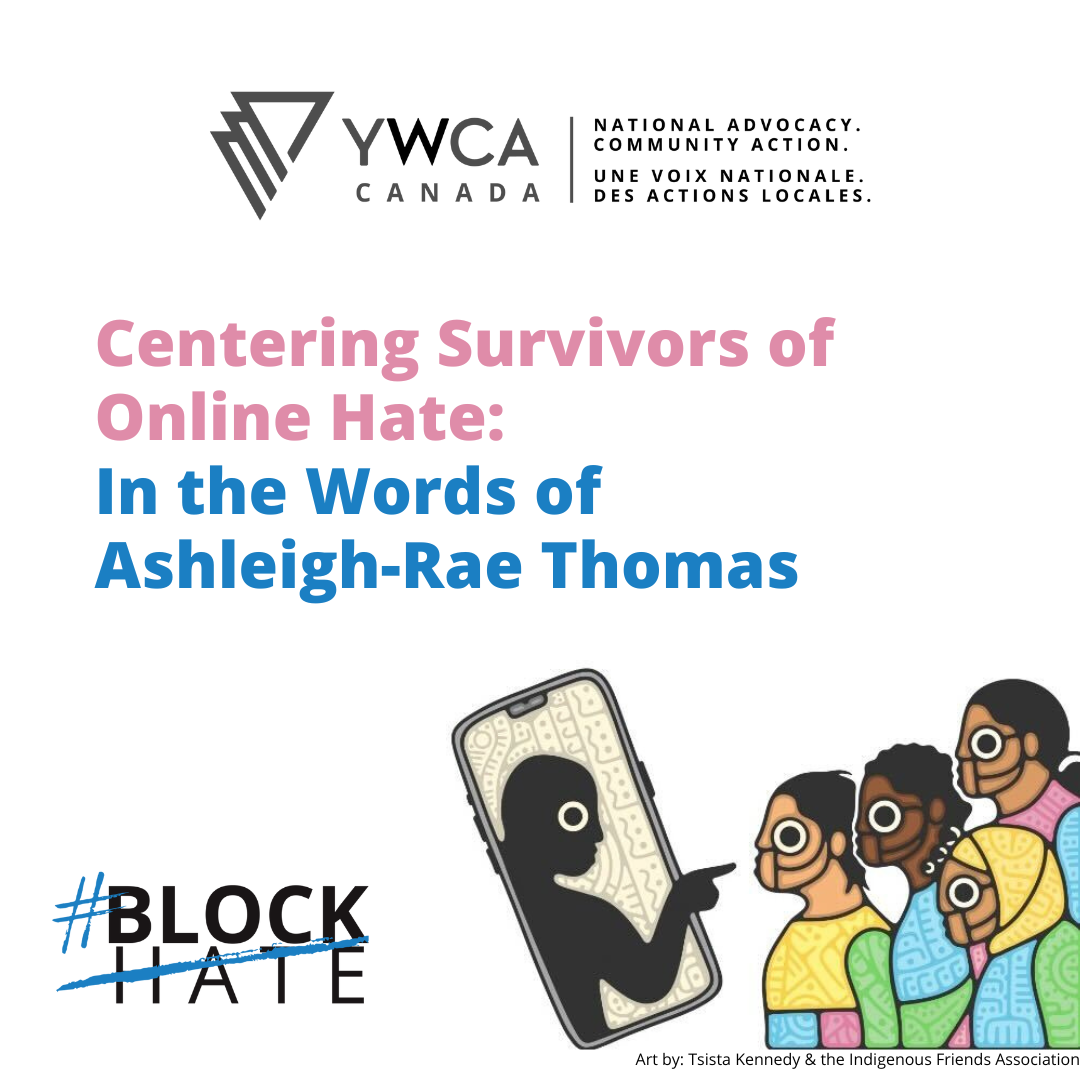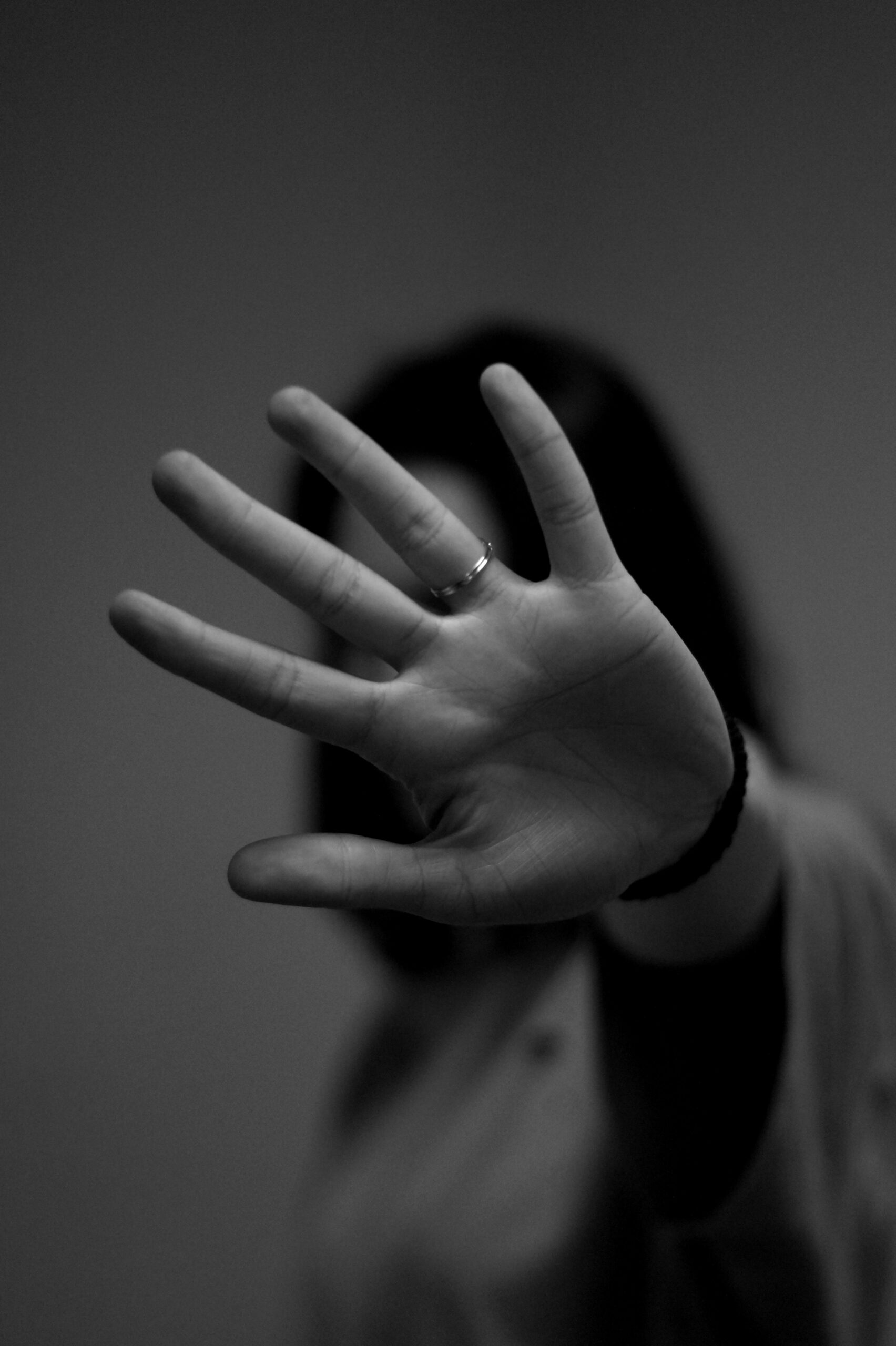
Addressing Online Hate
Community Tips to Counter Online Hate

Digital safety is the key to finding joy and community online! As part of YWCA Canada’s work to end Gender-Based Violence in every form, we worked with youth and survivors across Canada to bring awareness and take action against Online Hate.
We’re excited to share this series to equip and empower young people and allies to respond to online hate.
Graphic Summaries

As part of YWCA Canada’s ongoing work to end Gender-based violence in all its forms, we are thrilled to release the graphic summaries of our National Research Report Centering Survivors and Taking Action on Gendered Online Hate in Canada – National Report and Policy Recommendations. This work centers the leadership, lived experiences, and strategies of young women and gender-diverse youth in addressing online hate.
YWCA Canada Releases 2022 #BlockHate Research Report and Polling Data

YWCA Canada Releases 2022 #BlockHate Research Report and Polling Data
YWCA Canada has authored a new report about online hate in Canada, which centers on the voices, lived experiences, and strategies shared by young women and gender-diverse youth aged 16-30 years.
Read the report here: #BlockHate: Centering Survivors and Taking Action on Gendered Online Hate in Canada – National Report
Read the results of the polling data here: Gender & Online Hate in Canada: A national survey of online hate speech as experienced by women and gender-diverse people aged 16-30.
Centering Survivors of Online Hate

In 2022, as part of, Block Hate: Building Resilience against Online Hate Speech, YWCA Canada commissioned national surveys and convened focus groups to discuss individual and collective experiences of online hate across Canada, and develop community-generated, survivor-centric solutions to curb the circulation of digital hate and mitigate its harms.
We learnt that 83% of women and gender-diverse people in Canada have witnessed online hate in the past 24 months. We also learnt that people who identify as living with disabilities, Indigenous, 2SLGBTQI and Black are disproportionately more likely to be targeted online.
These statistics are troubling, and as we work towards creating safer online spaces, we must continue to center people, their experiences and their stories that are the heart of this work.
In the first of an ongoing series, Ashleigh Rae-Thomas, an Afro-Caribbean writer, facilitator, and avid community organizer from Toronto, by way of Jamaican roots, shares her experience of being targeted by racist and sexist online hate.
Author: Ashleigh-Rae Thomas
Just about 1 year ago, I received an email from a secure address, from a man calling himself ‘Master Whiteman.’
At first, I thought it was some weird scam email. I hadn’t shared that email address with anyone outside of jobs I was applying for. I still, to this day, don’t know how he received my address.
He described me in the most misogynoiristic (misogyny against Black women), racist, homophobic, fatphobic, and threatening way he could.
Let me back up and give you a little context.
At the end of September and beginning of October of 2021, many of my colleagues and peers had been receiving hateful emails. They were mostly women of colour receiving racist and sexist messages. Some messages mentioned my peers’ COVID coverage. Others mentioned politicians they had reported about.
Just the night before I received my email, I saw that another reporter who trained me had received an awful message. I remember commenting on his post, incredulous, and offering my support. Maybe that’s why I was targeted next.
To his credit, Master Whiteman was very descriptive. His word choice made me feel panicked. One of the tamer things he called me was a ‘bald head chimp in a dress,’ which led me to believe he had seen the selfie I posted on Twitter, with my hair cut low while I was wearing an orange dress.
I felt like I was being watched. He knew what I looked like. He knew my email address. He knew I was a queer woman because he also called me a ‘man hating lesbian.’
At first, I joked it off because I couldn’t believe it. It was so hateful that it was almost laughable. Hate mail to journalists is so cliché, right? I didn’t expect to get one so soon in my junior career. I had definitely gotten hateful comments on articles I had written in the past, but one learns quickly not to read comments or engage with trolls.
I ended up needing a few days off work. My managers reported it to the police, who weren’t remotely helpful. The email server deleted Master Whiteman’s email address, but they couldn’t (or, perhaps wouldn’t) act further. I became so scared of checking my email after that. Though it was just one time, and it was a year ago, I still worry I’ll get another one.
The internet should not be a scary place for women, and journalists shouldn’t have to live in fear of being targeted. I’m grateful that it was just one time – some of my peers are still being harassed to this day.
One day, this won’t be a hazard of the job or an unfortunate perk of being a marginalized person on the internet. I just hope we can be guaranteed protection before someone gets seriously hurt.
Block Hate

Block Hate: Building Resilience against Online Hate Speech is a four-year research and knowledge mobilization project funded by Public Safety Canada’s Community Resilience Fund. It will work with a variety of sectors to co-create concrete solutions for online hate speech and hate crime in communities across Canada.
The overall objective of this project is to improve community resilience by developing technological intervention tools to prevent, address and report online hate speech through community-based research.
It will strengthen civil society responses at the national and local levels through engagement with the information, communication, and technology sector as well as local communities in creating and sharing counter-narratives against Anti-Black racism, Anti-Indigenous racism, Islamophobia and xenophobic or racist discourses. The project will target youth aged 14 to 30 in communities across Canada with a focus on youth experiencing marginalization including young women and non-binary youth, Black, Indigenous and youth of colour, LGBTQ2S+ youth, religious minorities, and youth with disabilities.
The project is comprised of four components: research and knowledge mobilization, creating partnerships with a coalition of stakeholders, building tools to combat hate speech in Canada, and capacity building for community actors.
Block Hate Campaign with CRRF
On March 21, 2020, International Day for the Elimination of Racial Discrimination, we launched #BlockHate, a national social media campaign with the Canadian Race Relations Foundation (CRRF) to address concerns around the rise of hate speech and racism online. The campaign features women of colour targeted by online hate through social media who share their experiences.
Media

Press:
- YWCA Canada Press Release on Tuesday, October 20th, 2020
- Government of Canada Press Release on Tuesday, October 20th, 2020
- Prime Minister Justin Trudeau Announces YWCA Canada’s Block Hate Initiative in Press Conference on Wednesday, October 21st, 2020
- Prime Minister Justin Trudeau Highlights YWCA Canada’s Block Hate During Question Period on Thursday, October 22nd, 2020
- CEO of YWCA Canada – Maya Roy’s Op-Ed in National Newswatch – October 22nd, 2020
- Survey suggests one in two people of colour have experienced online racism in Canada – Laura Dhillon Kane – Canadian Press – March 21, 2021
- Young women of colour face hate-filled online environment – Alex Nguyen – Ricochet Media – March 21, 2021
- Racialized Canadians 3 times more likely to experience online hate, survey says – Sabrina Jonas – CBC Media – March 22nd, 2021
- Social media campaign #BlockHate aims to bring online hate to light – Farrah Merali – CBC TV – March 22nd, 2021
- We won’t recover from the COVID-19 pandemic unless the outbreak of online hate is stamped out – Op-Ed in The Globe and Mail by CEO Maya Roy and ED Mohammed Hashim of Canadian Race Relations Foundation – March 23rd, 2021
- Online hate is silencing women and racialized people and it must stop – Amira Elghawaby – Toronto Star – March 23, 2021
Presentations:
For more information about the program, please contact us at projects@ywcacanada.ca.
Block Hate: Building Resilience against Online Hate Speech is funded by the Government of Canada, Public Safety Canada.
Resources

Project Shift:
YWCA Canada Resources:
- A quick guide on sexual image based abuse
- A Rights Guide for Girls, Young Women & Gender Nonconforming Youth
Youth-led Projects:
